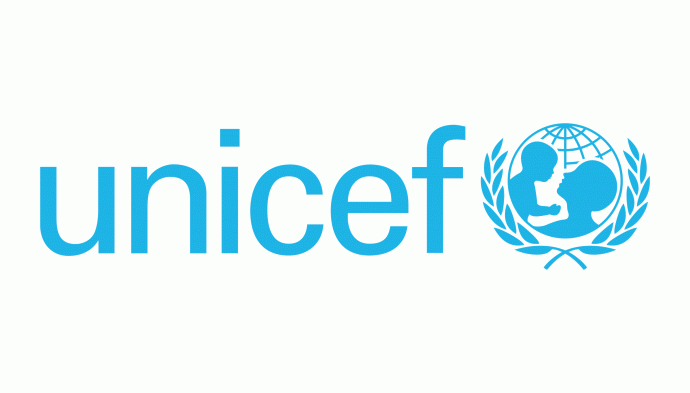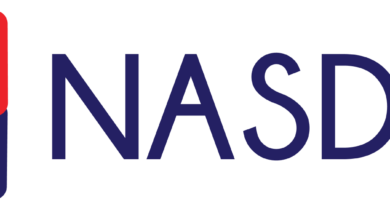Job Vacancies at UNICEF: Make a Global Impact Today
The United Nations International Children’s Emergency Fund (UNICEF) works in some of the world’s most difficult environments to reach the world’s most vulnerable children. To save their life. To defend their rights. To help them reach their full potential.
UNICEF provides a variety of challenging and fascinating opportunities in its core functional areas of operation. We provide an outstanding compensation plan that includes competitive pay and benefits.
Applications are being accepted from interested and qualified applicants for job openings at UNICEF – United Nations International Children’s Emergency Fund.
International Consultancy- Data and Analytics
Job Specifications:
- Full Time
- Required Qualifications: BA/BSC/HND – MBA/MSC/MA
- Location: Abuja| Nigeria
Job Description:
Major Tasks to be accomplished during this consultancy include:
- Support the ongoing SWAp initiative of the FMOH as it relates to data optimization
- Support the national and 36+1 state RMNCAH scorecard alignment with SWAp indicators down to facility level. This includes capacity building of DHPRS and mentoring support to planning officers towards institutionalizing this work.
- Support the PHC Leadership Challenge PHC system performance framework linked with the annual operational plans, the M&E Plan of the National Strategic Health Development Plan II and initiatives like the MSDAT. This includes work with the IVA to better understand state level performance and support documentation efforts.
- Support data quality and other aspects on data initiatives in the Health Section including the different accountability frameworks under the programme.
- Support the data for evidence and documentation of successes in the eight (8) GAVI PHC MoU states
- Support the review of DHIS2 indicators/data elements and NHMIS report forms and registers including the extension of scorecard related products, such as with program score cards (e.g. nutrition)
- Support the linkages between community scorecards or facility profiles and GIS based catchment population estimates and visualizations.
- Support optimization of data for decision making in the three (3) SARAH states
- Support Decentralized Digitalization of HIS and introduction of Automated data use apps.
- Support in HSS section in its efforts to develop a targeted strategy for strengthening of health information system.
- Support Analytic/Visualistic tools on Health Supply chain
- Support analysis of data from the UNICEF supported level-2 newborn units
Tasks/Milestone:
- Quarterly reporting on RMNCAH+N Scorecards used and updated in all 36 States and FCT, the national level, and LGA-Facility scorecards, along with extensions of scorecard methods and approaches as part of overall Health Information System reforms.
Deliverable/Output:
- Score cards reports of all 36 states and the FCT reported on the rmncah.org
- Support the GAVI Funded PHC MoU states in the development and operationalization of the Data Quality Improvement Plans working with State Counterparts and other partners
Deliverable/Output:
- Quality data improvement plans for the 8 PHC MoU states developed and adopted for utilization
- Lead in HMIS support to FMOH and NPHCDA as well as the overall digital health program of the FMOH the Nigeria Health Sector Renewal Initiative and SWAp Agenda of the FMOH
Deliverable/Output:
- Report of the assessment and the priority recommendation for action.
- Support the PHC Leadership Challenge PHC system performance framework linked with the Nigeria Health Sector Renewal Initiative and SWAp Agenda of the FMOH
Deliverable/Output:
State by state health services performance report of all 36 state and the FCT (part of PHC LC PMF)
- Support provided to the Independent Verification Agent
- Report of the analysis and evaluation of the IVA activities,
Quarterly reporting on RMNCAH+N Scorecards used and updated in all 36 States and FCT, the national level, and LGA-Facility scorecards, along with extensions of scorecard methods and approaches as part of overall Health Information System reforms
Deliverable/Output:
- Score cards reports of all 36 states and the FCT reported on the rmncah.org
- Support in provision of optimized data analysis of the UNICEF supported level-2 newborn units across states with emphasis on the SARA supported states.
Deliverable/Output:
- Enhanced data reporting systems produced for the states.
- Lead in HMIS support to FMOH and NPHCDA as well as the overall digital health program of the FMOH the Nigeria Health Sector Renewal Initiative and SWAp Agenda of the FMOH.
Deliverable/Output:
- Report of the assessment and the priority recommendation for action
- Support Analytic/Visualistic tools on Health Supply chain
Deliverable/Output:
- Health supply chain visual tools developed.
Qualifications and Requirements:
- An advanced university degree in public health or any related discipline.
- At least eight years or more experience working in MNCAH programs and/or health projects.
- Prior experience with HSS programming is an added advantage.
- Demonstrated ability to produce high quality data and programmatic materials
- Experience in writing for UN agencies (human interest stories, reports etc) UNICEF specific experience will be a strong asset
- Fluency in oral and written English is required.
- Computer skills, including internet navigation and various office applications.
- Demonstrated ability to work in a multi-cultural environment and establish harmonious and effective working relationships, both within and outside the organization.
Emergency Manager
Job Specifications:
- Full Time
- Required Qualifications: BA/BSC/HND – MBA/MSC/MA
- Location: Abuja| Nigeria
Job Description:
KEY END-RESULTS:
- Emergency preparedness is effectively arranged together with establishment of country contingency plans and early warning mechanisms.
- Emergency preparedness and response plans addresses gender issues that may be expected to intensify during emergencies.
- Emergency plans of action are developed, and compliance and coordination of all sectors with the plans are implemented.
- Policy advice on emergencies and programme guidance related to implementation of emergency preparedness measures are effectively provided.
- Coordination and management of emergency preparedness and response and a consistent flow of information of the humanitarian situation are effectively maintained within the office.
- Significant improvements are made in the emergency preparedness and response capability of UNICEF staff and implementing partners through conduct of effective training activities.
- In the event of an emergency, UNICEF’s presence is promptly established and the initial emergency operational tasks are effectively executed, including provision of support for information communication technology, telecommunications facility and all staff security related assistance in the country office.
- Needs assessment is effectively conducted to determine priorities and an appropriate intervention by UNICEF based on the local emergency situation affecting children and their families and community.
- Effective assistance is provided to the (Deputy) Representative in emergency operations oversight and program management with clear accountabilities.
- Emergency appeals and project proposals are prepared, and concerted efforts are put forward to mobilize donor response and recovery/rehabilitation-related funding.
- Longer-term requirements of the emergency operation/interventions are determined to develop a regular operational and staffing structure.
- Continuous, effective and strategic coordination, communication, consultation and liaison are maintained with Government, UN agencies, NGOs, donors and allies in support of the special needs of children and women affected by emergency situations within the framework of the cluster approach and based on the Core Commitment for Children.
- Management is kept informed of humanitarian developments in relevant policies, situation developments, potential threats and opportunities/issues in the country
KEY ACCOUNTABILITIES and DUTIES & TASKS
- Within the delegated authority and under the given organizational set-up, the incumbent may be assigned the primary, shared, or contributory accountabilities for all or part of the following areas of major duties and key end-results.
Emergency Preparedness:
- Ensures that adequate emergency preparedness measures are taken through the development and updating of country contingency plans and establishment of early warning mechanisms, which leads to more effective preparedness and response to specific emergencies.
- Participates in the formulation and development of plans of action in preparation and response to emergencies, and monitors compliance of all sectors with emergency plans of action, including financial resources. Ensures coordination of the management of emergency preparedness and response.
- Provides policy and program advice related to emergencies, including on management related issues. Provides direction and guidance to the country office in the implementation of emergency preparedness measures, which strengthens preparedness and response mechanisms in the country faced with impending emergencies.
- Develops and maintains databases on country/regional information and ensures the flow of information and communication crucial for the planning and implementation of emergencies. Identifies availability of resources in emergency prone areas and establishes logistics plans to be implemented during an emergency operation, to ensure a timely and effective emergency response.
- Assists in developing and conducting emergency training courses specifically designed for regional standby Emergency Response Teams; participates in these courses with the Team and participates in other emergency training workshops in the region, leading to build-up in the emergency preparedness and response capability of UNICEF staff and implementing partners. Plans, organizes and conducts training for the office’s staff capacity building in emergencies preparedness and response.
Emergency Response:
- In the event of an emergency, takes prompt action as Team Leader or member of the Emergency Response Team which is deployed immediately to establish UNICEF’s presence and implement the initial operational tasks relating to emergency assistance. Ensures that the office is provided with effective telecommunications facility and security assistance for the staff in an emergency, as necessary. In coordination with the programme and operations groups, establishes contact with all UNICEF staff and their dependents and visitors to ensure their safety and whereabouts, and informs OPSCEN and the Regional Director of their status.
- Assesses local conditions resulting from the emergency situation affecting children and their families in the country. Leads and/or participates in needs assessment missions in conjunction with the Regional Office, the HQ Divisions, and field staff, in order to determine priorities and an appropriate intervention by UNICEF. Participates in UN Country team emergency response and contributes to assessing the crisis and humanitarian situation in the country with special regard to the survival, protection and wellbeing of children, adolescents and women.
- Assists the (Deputy) Representative in emergency operations oversight and program management to ensure that the funding, budget, management, reporting, and field presence coordination are managed efficiently and effectively with clear accountabilities.
Emergency Project:
- Prepares inputs for appeals and updates related to emergencies as well as project proposals for emergency. Works with program sections and senior management to mobilize donor response and recovery/rehabilitation-related funding, including annual or multi-annual humanitarian appeals and documents.
- Establishes longer-term requirements of the emergency operation/interventions. Plans and develops a more regular operational and staffing structure to take over from the Emergency Response Team.
- Maintains continuous, effective and strategic coordination, communication, consultation and liaison with Government, UN agencies, NGOs, donors and allies to appeal for aid for children and women with the special needs resulting from emergency situations requiring effective emergency responses in all sectors. Identifies implementing/operational partners and establishes implementing arrangements. Ensures that the UNICEF support is effectively provided to the government with respect to sectoral coordination within the framework of the cluster approach and based on the Core Commitment for Children.
- Represents UNICEF in all humanitarian and recovery related forum at the strategic level and keeps management informed of all humanitarian developments in the country in terms of policies, strategy, situation developments, potential threats and opportunities/issues in partnership.
Qualifications and Requirements:
Minimum requirements:
Education:
- An advanced university degree in one the following fields: social sciences, public administration, law, public health, nutrition, international relations, business administration or other related disciplines.
Work Experience:
- Eight years of progressively responsible professional work experience at the national and international levels in programme/project development, planning, implementation, monitoring, evaluation and administration.
- Developing country work experience (for IP) or field work experience (for NO).
- Specialized training/experience in emergency response management highly desirable.
Method Of Application
Interested and qualified candidates should apply by clicking the button below to start their application.
Deadline: January 7, 2024



